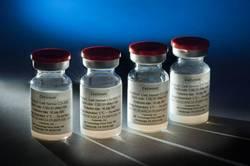
June 2, 2009 - Celsense Inc. reported it is one of the recipients in a four-year $1.95 million grant from the National Institutes of Health, funding to evaluate Cell Sense, the company’s fluorocarbon-based magnetic resonance imaging (MRI) cell tracking reagent, for clinical use. Additionally, the studies will garner preliminary data critically important for improving immunotherapeutic delivery strategies in metastatic colorectal (CRC) and other forms of cancer.
The Cell Sense technology makes transplanted cells visible by MRI. Therapeutic cells are labeled ex vivo with the Cell Sense reagent prior to administration to the patient. Cell migration and biodistribution are subsequently monitored using fluorine-19 (19F) MRI or magnetic resonance spectroscopy (MRS). The key advantage of Cell Sense is that the 19F images are extremely selective for the labeled cells, with no background signal from the host’s tissues. Furthermore, accurate cell quantification in regions of interest is possible.
Existing data from pre-clinical studies using human cells show that the Cell Sense reagent is highly biocompatible inside cells and does not affect their innate function. A clinical-grade version of the Cell Sense reagent has been formulated by Celsense, Inc. and is currently being subjected to mandatory in vitro and animal safety studies in preparation for human trials.
To conduct this project, Celsense has partnered with academia, including scientists at Carnegie Mellon University, where the imaging technology was invented in the laboratory of Dr. Ahrens. Also participating is the University of Pittsburgh Cancer Institute (UPCI) which is actively conducting clinical trials using immunotherapeutic dendritic cell (DC) vaccines to treat CRC, directed by Drs. Kalinski and Bartlett.
For more information: www.Celsense.com.


 February 13, 2026
February 13, 2026 









